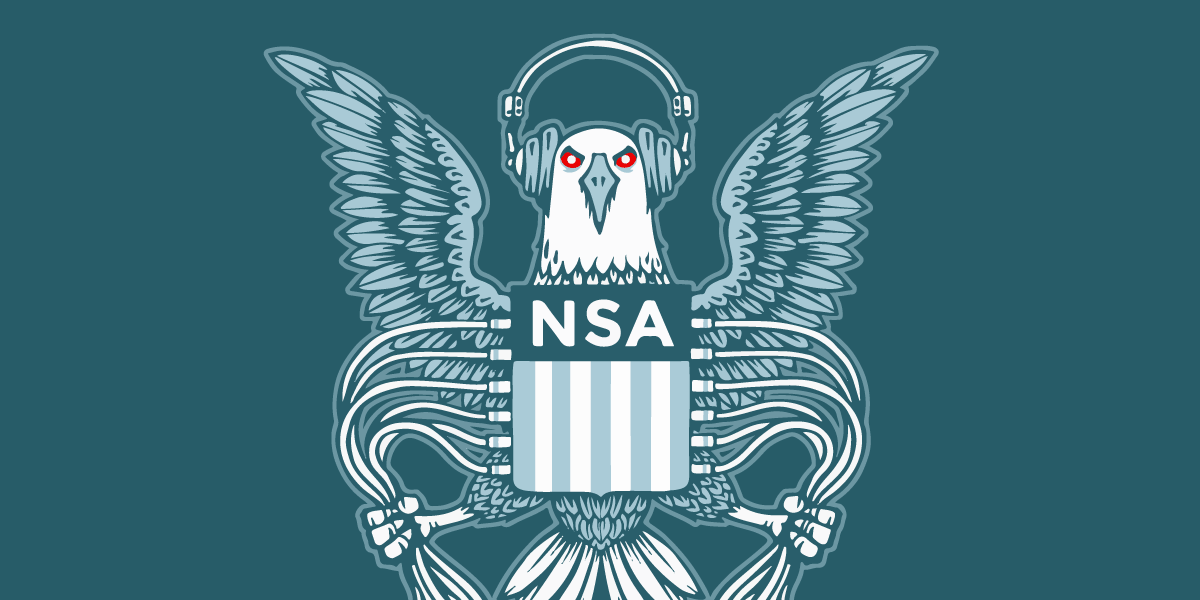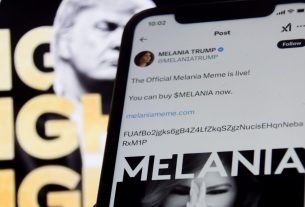With Section 702 of the Foreign Intelligence Surveillance Act set to expire later this month, the White House recently released a memo objecting to the SAFE Act—legislation introduced by Senators Dick Durbin and Mike Lee that would reauthorize Section 702 with some reforms. The White House is wrong. SAFE is a bipartisan bill that may be our most realistic chance of reforming a dangerous NSA mass surveillance program that even the federal government’s privacy watchdog and the White House itself have acknowledged needs reform.
As we’ve written, the SAFE Act does not go nearly far enough in protecting us from the warrantless surveillance the government now conducts under Section 702. But, with surveillance hawks in the government pushing for a reauthorization of their favorite national security law without any meaningful reforms, the SAFE Act might be privacy and civil liberties advocates’ best hope for imposing some checks upon Section 702.
Section 702 is a serious threat to the privacy of those in the United States. It authorizes the collection of overseas communications for national security purposes, and, in a globalized world, this allows the government to collect a massive amount of Americans’ communications. As Section 702 is currently written, intelligence agencies and domestic law enforcement have backdoor, warrantless access to millions of communications from people with clear constitutional rights.
The White House objects to the SAFE Act’s two major reforms. The first requires the government to obtain court approval before accessing the content of communications for people in the United States which have been hoovered up and stored in Section 702 databases—just like police have to do to read your letters or emails. The SAFE Act’s second reform closes the “data broker loophole” by largely prohibiting the government from purchasing personal data they would otherwise need a warrant to collect. While the White House memo is just the latest attempt to scare lawmakers into reauthorizing Section 702, it omits important context and distorts the key SAFE Act amendments’ effects
The government has repeatedly abused Section 702 by searching its databases for Americans’ communications. Every time, the government claims it has learned from its mistakes and won’t repeat them, only for another abuse to come to light years later. The government asks you to trust it with the enormously powerful surveillance tool that is Section 702—but it has proven unworthy of that trust.
The Government Should Get Judicial Approval Before Accessing Americans’ Communications
Requiring the government to obtain judicial approval before it can access the communications of Americans and those in the United States is a necessary, minimum protection against Section 702’s warrantless surveillance. Because Section 702 does not require safeguards of particularity and probable cause when the government initially collects communications, it is essential to require the government to at least convince a judge that there is a justification before the “separate Fourth Amendment event” of the government accessing the communications of Americans it has collected.
The White House’s memo claims that the government shouldn’t need to get court approval to access communications of Americans that were “lawfully obtained” under Section 702. But this ignores the fundamental differences between Section 702 and other surveillance. Intelligence agencies and law enforcement don’t get to play “finders keepers” with our communications just because they have a pre-existing program that warrantlessly vacuums them all up.
The SAFE Act has exceptions from its general requirement of court approval for emergencies, consent, and—for malicious software—“defensive cybersecurity queries.” While the White House memo claims these are “dangerously narrow,” exigency and consent are longstanding, well-developed exceptions to the Fourth Amendment’s warrant requirement. And the SAFE Act gives the government even more leeway than the Fourth Amendment ordinarily does in also excluding “defensive cybersecurity queries” from its requirement of judicial approval.
The Government Shouldn’t Be Able to Buy What It Would Otherwise Need a Warrant to Collect
The SAFE Act properly imposes broad restrictions upon the government’s ability to purchase data—because way too much of our data is available for the government to purchase. Both the FBI and NSA have acknowledged knowingly buying data on Americans. As we’ve written many times, the commercially available information that the government purchases can be very revealing about our most intimate, private communications and associations. The Director of National Intelligence’s own report on government purchases of commercially available information recognizes this data can be “misused to pry into private lives, ruin reputations, and cause emotional distress and threaten the safety of individuals.” This report also recognizes that this data can “disclose, for example, the detailed movements and associations of individuals and groups, revealing political, religious, travel, and speech activities.”
The SAFE Act would go a significant way towards closing the “data broker loophole” that the government has been exploiting. Contrary to the White House’s argument that Section 702 reauthorization is “not the vehicle” for protecting Americans’ data privacy, closing the “data broker loophole” goes hand-in-hand with putting crucial guardrails upon Section 702 surveillance: the necessary reform of requiring court approval for government access to Americans’ communications is undermined if the government is able to warrantlessly collect revealing information about Americans some other way.
The White House further objects that the SAFE Act does not address data purchases by other countries and nongovernmental entities, but this misses the point. The best way Congress can protect Americans’ data privacy from these entities and others is to pass comprehensive data privacy regulation. But, in the context of Section 702 reauthorization, the government is effectively asking for special surveillance permissions for itself, that its surveillance continue to be subjected to minimal oversight while other other countries’ surveillance practices are regulated. (This has been a pattern as of late.) The Fourth Amendment prohibits intelligence agencies and law enforcement from giving themselves the prerogative to invade our privacy.



